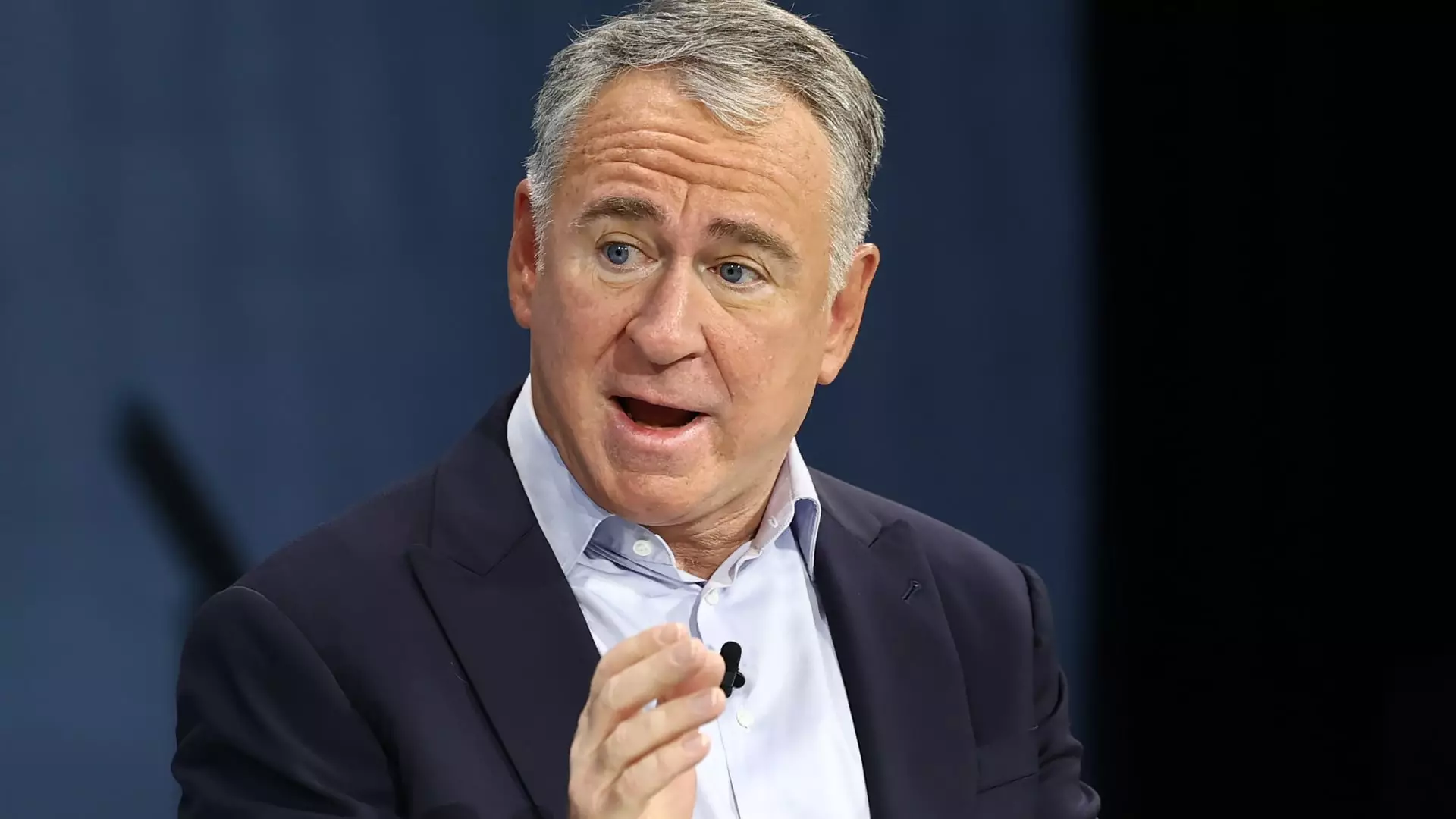In an era marked by heightened trade tensions, Ken Griffin, CEO of Citadel, has raised significant concerns regarding the implications of aggressive trade policies spearheaded by the Trump administration. At the recent UBS Financial Services Conference in Key Biscayne, Florida, Griffin expressed that the repercussions of such combative rhetoric are already being felt in the business landscape. “The damage has already been done,” he stated, emphasizing that a confrontational approach to negotiation can harm the credibility of the United States as a reliable trading partner. The fear is that businesses, government leaders, and investors may begin to view America as an uncertain entity on the global stage.
Griffin’s comments came in response to President Trump’s recent decision to impose tariffs of 25% on steel and aluminum imports, alongside an existing 10% duty on Chinese imports. This unyielding stance has raised alarms among business leaders who are forced to navigate a landscape fraught with unpredictability. Griffin, who has historically supported Trump and contributed significantly to Republican political campaigns, now finds himself at odds with the very economic strategies he once endorsed.
Long-Term Investments Under Threat
The implications of Trump’s trade policies extend beyond immediate concerns and threaten the viability of long-term investments for multinational corporations. Griffin argues that a stable trading environment is essential for businesses to plan effectively over the next several years. For industries that require substantial capital investment and lengthy lead times, the uncertainty brought about by tariffs can create long-lasting detrimental effects on their operations and growth prospects.
“The longer the uncertainty persists, the more challenging it becomes for businesses to make strategic decisions,” Griffin explained. This lack of clarity undermines the foundation for future growth and makes it increasingly difficult for companies to invest confidently in new projects, thereby stalling economic development at a crucial time.
The Risk of Crony Capitalism
Moreover, Griffin has previously expressed concerns about the potential for crony capitalism as a byproduct of this aggressive trade posture. This term refers to an economic system where relationships between businesses and government officials lead to favoritism and an uneven playing field. Griffin warns that punitive tariffs could lead to a reliance on closer connections with government entities for businesses wishing to thrive in a turbulent market, further muddling the lines of fair competition.
As the landscape evolves, the need for clear and constructive trade policies becomes all the more essential. Business leaders and policymakers must prioritize long-term stability over immediate gains if they are to sustain healthy economic growth. The apprehensions voiced by Ken Griffin serve as a critical reminder that navigating global trade relations is no small feat and that decisions made today will undoubtedly shape the economic landscape of tomorrow.
As the intricacies of global trade continue to unfold, the ability to maintain a reliable and predictable framework for economic engagement remains paramount—not just for businesses but for the broader economy as well.

